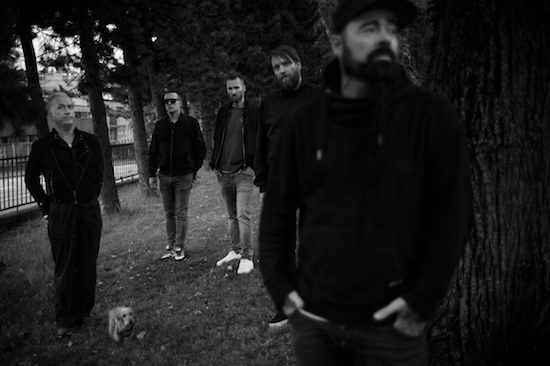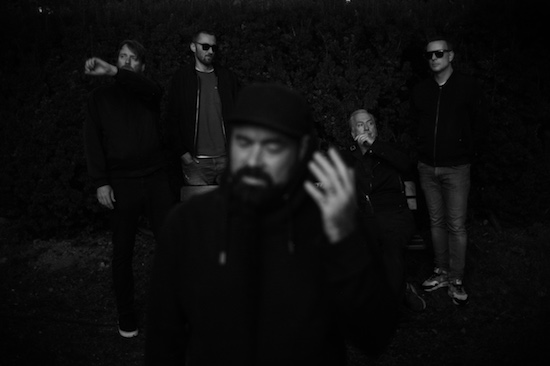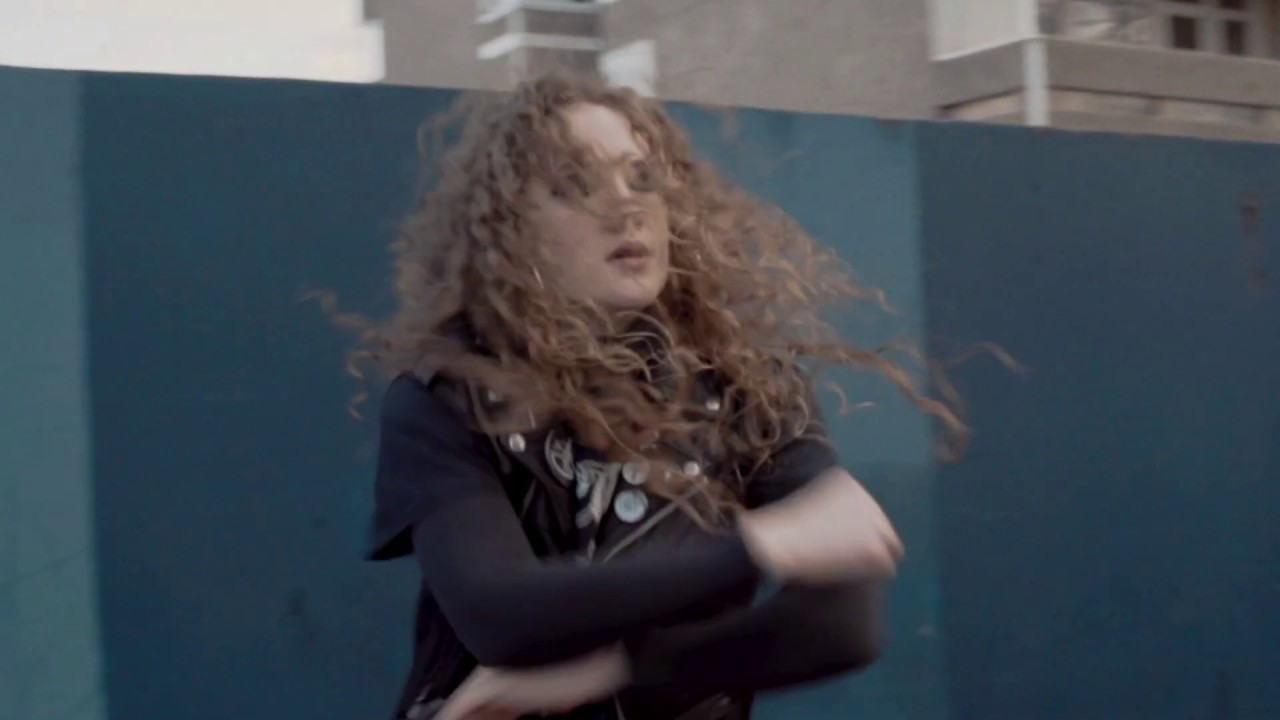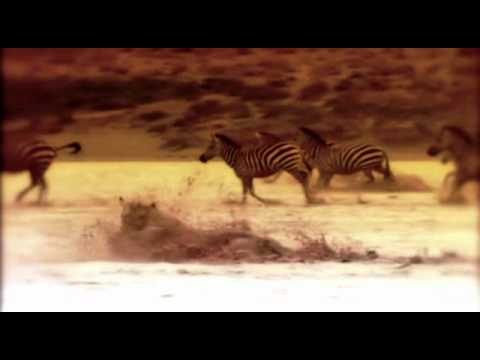Ulver portrait by Brian Cliff Olguin
The cover of Ulver’s new album, Flowers Of Evil, grabs you by the throat. A young woman is having her hair crudely cut, her eyes shut, wearing an expression of pain and sadness. It is a still from the film set of The Passion Of Joan Of Arc, directed by Carl Thomas Dreyer in 1928. The actress is Renée Jeanne Falconetti. It brings to mind the greatest genocidal crimes of the twentieth century, especially the Holocaust. But it also reminds us that history is repeating – women of the Uighur Muslim minority routinely have their heads shaved in Chinese concentrations camps today.
Ulver (Norwegian for ‘wolves’) had originally considered the image for one of the sides of the vinyl release of 2016’s ATGCLVLSSCAP (aka the “Zodiac” record). Frontman Kristoffer Rygg told me they thought it was “too dark or oppressive for the vibe of that album”. Not so for Flowers Of Evil. The photograph haunted Rygg over the intervening years, one of the potent images the band keep coming back to in their artwork and their lyrics.
When on the first song of the album, ‘One Last Dance’, Rygg sings of “all the oppression that has taken place under the sun”, this image provides its face. And, tragically, it is a face fit for 2020, burdened by God, and – so the song insists – with people’s hearts “full of evil”. We mere mortals must “work, sleep and do the best we can”.
Anyway, enough lightheartedness. With Flowers Of Evil, Ulver are consolidating and extending the approach they began taking with 2017’s The Assassination Of Julius Caesar. I clearly remember my first listen to the single from that album, ‘Nemoralia’. I was floored by it. The lyrics called together the Roman emperor Nero, the great fire of Rome in 64AD, the subsequent burning of Christians, then the Roman goddess of the moon, Diana, and most audaciously the death of Princess Diana – in a sequence of lyrical imagery ripped from classical and modern history – to tell a story of the tragedy of power down the ages.
The music these images were contained within was synth pop in the vein of classic Tears For Fears: brooding, crooning, downright danceable. Flowers Of Evil builds on this expression and exaggerates it further. The single ‘Russian Doll’ is like a Pet Shop Boys song that dwells on a victim of modern-day slavery and sex-trafficking. It has that same dark sheen (the melodic intervals and synthetic flourishes), combined with a disassociated sadness, that marks it out as Ulverish.
No Ulver album is the same as another. Perhaps the band felt it was time to explain themselves further because they are also publishing Wolves Evolve, a book that spans their 25-year-plus history. It is compiled of conversations conducted between the members and writer-friend Tore Engelsen Espedal.
Ulver infamously started as a black metal band. Black metal is in their DNA, if not in their surface appearance. After three releases which are considered a trilogy, they began a process of shifting that meant each subsequent album was a new beginning. Reprinted in the book, in the press statement for their 2000 album Perdition City, the writer Timo Kölling said: “Everything falls. World history is an endless process of failure and falling, forced forward by opposed powers. In this twilight Ulver hovers, somewhere between Beast and Man, noise and silence, the golden summits and the dead centre.”
Throughout their career, Ulver have kept their story on a tight leash. By drawing on mythology near and distant, they cultivated their own. It is no different here, in a book which is carefully edited from spoken exchanges between its members. “We rather enjoyed the process, talking, reminiscing, then reading, writing, adding or subtracting things as we went along,” Rygg told me. “And I have to say, I do enjoy that approach in other music biographies too, the ‘oral history’ style, where it doesn’t get too heavy.”
In their aim to make their story “relatively digestible”, Ulver have been successful. But if you felt the edited conversation format might feel a little arch and even standoffish at points, you might be right. Ulver keep a measured hand on their story and their myth, and maybe that’s no bad thing: “I think there is hardly ever an absolute truth, no, and I reckon most bands are aware of their mythology to some extent,” says Rygg. “For us, it’s been important to try and just tell things as they’ve happened and as we see it, try to be as truthful as we are able to, and our memory or self-respect allows.”
That is because mythology brings with it dangers. When the reality of a situation fades into memory the myth takes over. There is one jaw-dropping moment in the book where Rygg describes being picked up in 1993 for the murder of Magne Andreassen, a crime actually committed by the drummer of fellow black metallers Emperor, Bard ‘Faust’ Eithun. Eithun had been approached by Andreassen in a park in Lillehammer which was a well-known cruising spot. He stabbed Andreassen 37 times.
As Rygg tells the story in the book: “Fun fact: at one point, I actually got staked out, hand-cuffed and put in the backseat of a police car in Torggata, outside Lusa Lottes Pøbb [a pre-Elm Street hangout]. The police had mistaken me for Bård [Eithun], who they arrested in Lillehammer the next day. It was chaos: journalists calling at all hours, interrogations down at Kripos [Norway’s National Criminal Investigation Service]. All this stuff transpired before I moved out from my parents’ house. But I hadn’t done anything criminal, at least nothing serious. I dutifully went to school during the daytime and rocked out in the evenings.”
The mythology that has emerged around Norwegian black metal emphasises that the protagonists were teenagers, without much regard for the impact events had on their mental well-being. The cool-headed, dispassionate way Rygg tells this story in the book surely conceals as much as it reveals. I asked Rygg if he felt traumatised by these experiences: “Good question. Possibly I have been. It was a quite hard time, as well as being fantastical… but yeah, quite transgressive. It was no doubt rough on a few young minds. Not everybody came out of it in great shape. Yeah, I don’t know. Possibly.” He Laughs. “Am I coloured by it? Certainly. Traumatised? Not sure. Maybe. Maybe – how you say? – subconsciously. We left it behind quite soon after those first five years or so, though. We kind of broke up with that scene, as many know. But yeah… Don’t quite know what else to say about that.”
But how did he cope at the time? “You know, back then I was much more – in Norway, we say ‘tough in the face’. I’m sure you don’t say that in English.” We don’t. I try and think of an equivalent: toughing it out; gritting teeth and bearing it; hardening our hearts.
“As a young lad, seventeen, eighteen, I was quite tough in the face. And this whole scene was obviously quite macho-oriented, it attracted some bad seeds, you know. A huge facet of that scene was about being able to stand in that storm and to live out the extremities. I probably dealt much better with that then, than I would now. With age comes fear.”
It is a period which still seems to bother the band. In the book, one telling exchange about the denial within certain hardcore sections of their audience about the band’s progression, is between one of the band’s newer members, Ole Alexander Halstensgärd (aka Sander), and Rygg. Sander opines that “this misinterpretation amplifies the mysticism surrounding the band. I think it makes it all the more special in some people’s eyes, the leap from the band’s early beginning to where, what, we are now.” Rygg’s reply in the book is not so sure: “Still, I can’t shake the feeling that this is a mythology that has kept us from reaching certain objectives and aspirations.”

Ulver portrait by Brian Cliff Olguin
Rygg has a great line in the book: “People love – insist on – the myth, even if they know it’s bullshit.”. Is it the case that mythology can hold more truth than "objective” reality? “Well, mythology is a kind of second-hand truth, in a sense.” Rygg tentatively replies. “Especially if… when enough time passes, I guess the myth becomes more interesting than the reality. I think we’re touching a bit on this too, in that part you referred to [in the book]. But while we’re still here we can adjust those stories, or at least attempt to do so.” He allows himself an ironic chuckle. “But yeah, mythology has its own will, and, no matter how true or not certain stories are, there’s a reason people keep telling them. You know, back in the day Euronymous used to say he knew the guys from Venom weren’t evil dudes, but he chose to believe they were.”
To a point, Ulver are still ensnared by their own black metal mythology. Perhaps that’s why they are confronting it more in the book and their musical output. The dancer-protagonist in the ‘Russian Doll’ video wears an old-school Bergtatt album Ulver shirt under a Coil-branded leather waistcoat, as she moves through a seemingly abandoned council estate in winter.
Did their mythology run away from itself? “Sure it did, but this also has to do with how it’s been reported in posterity, by other people… outsiders. But it’s so close in time, and for me actually personally quite close. So it makes sense to – not to battle this mythology – but to correct it where we can. Before it becomes – which ultimately will happen – the mythology will take over any semblance of truth. Or contain only very small parts of truth. Things get distorted with time, basically. I find that very fascinating actually.”
It is fascinating enough that Ulver still play with the symbology of the period. The opening track of Flowers Of Evil promises “One Last Dance/ In this burning church”. Another song, ‘Apocalypse 93’, draws a stark visual parallel with the burning compound of the Branch Davidians in Waco, Texas (besieged by the ATF) in February 1993 and the blazes that consumed Fantoft Stave church in Bergen, and others, in Norway, in the early nineties.
The leader of the Davidians, David Koresh, was a messianic wannabe rock star. Last year’s documentary shown on the BBC, Waco: Madman Or Messiah, contained camcorder footage of Koresh preaching with a fully assembled backline of Marshall amps – like the evangelical mirror-image of black metal’s Satanic inner circle.
Rygg also saw the documentary when it was broadcast in Norway. It became the basis of the song: “That documentary brought back some images from that time, and I thought, ‘Damn, this is material for a song.’ Especially because it taps into these biblical narratives, Revelation, the seven seals and all that, mixed with the strangeness of the story itself, the self-fulfilling prophecy. I think that when we spoke last it was about how things from different places can start to speak to one another, how things sometimes align in the weirdest ways, across time and space. And that’s exactly what happened here with this Waco song, well – Waco-inspired song, I should say.”
As well as the scene of one of black metal’s most notorious crimes, the city of Lillehammer later played a prominent role in the band’s evolution. It was there they effectively made their live debut in 2009 (there had been one previous excursion in 1993) at the Norwegian Festival of Literature. They were invited by the festival’s content director, author Stig Sæterbakken, who actually resigned from his position in October 2008 when the festival board rescinded his invitation to Holocaust-denier David Irving to speak at the festival.
Wolves Evolve has several ‘detours’, pieces commissioned (or recovered) about the band by other writers. By far the most successful is the piece about the 2009 festival by Torolf Kroglund. It had been “abandoned for various reasons” (unexplained in its preface) but here it is presented as ‘Lillehammer 2009-1994’ and translated into English by Espedal.
The theme of the festival that year was “truth” and Stig Sæterbakken (perhaps unaware of Karl Popper’s paradox of tolerance) could barely contain his disgust at the festival board’s refusal to allow Irving to appear. As Kroglund reports, Sæterbakken was appalled by their “inability to listen to and debate opinions differing from what everyone agrees upon”. In today’s parlance, he might have claimed he and Irving had been “cancelled”.
Nevertheless, Sæterbakken remained on as the temporary manager for Ulver’s first performance in 16 years. As such, it drew a lot of the old guard, curious to see how Ulver would turn out. Kroglund describes them as the “stalwart and steadfast, the black-clad and longhaired”. As Ulver began playing they projected images from Nazi Germany and mass graves from the concentration camps, which Kroglund speculates might have been a comment on Irving. The video backdrop then transitioned into footage of a lioness killing a zebra. It’s as if Ulver dispensed with the extremities of their black metal heritage to purge it from the audience’s minds and/or expectations – the charges of fascism and the survival-of-the-fittest: some of the uglier faces of the mythology that had sprung up around the scene that birthed them.
As the concert progressed, the band got into the business of showcasing what Cornelius Jakhelln (in a lecture before the concert attended by Kroglund) described as their “grand nocturnal pop” befitting “black metal’s Coldplay” (!) The Kroglund essay is fantastic, a gem within the Matroyshka doll of the book, and goes a long way to justifying the asking price (the book is a lavish production, full of colour photography, that Rygg jokes is a “fucking brick”).
The Lillehammer concert followed the release of the album Shadows Of The Sun (2007), a record where Ulver made of quiet, contemplative sparsity what Blood Inside (2005) made of noisy, sacrilegious excess. With the self-renewal each new project represents, I wondered if Ulver is in a battle between these two modes: “I wouldn’t use the word ‘battle’, sounds like it’s a contest,” Rygg laughs. “More like a dance. Like a wavering between the mediums. Again, we’re back to Blake [the subject of their black metal break-up album, 1998’s Themes From William Blake’s The Marriage Of Heaven and Hell]: ‘Without contraries is no progression’. So yeah, we love that. Contrasts. If we do something that’s, say, very well-produced, and has taken us forever to complete, it’s just so nice to step into a different space where you realise something a bit more quickly and you can leave some mistakes in there, and it doesn’t have to necessarily sound like this big, elaborate production. So that’s just something we enjoy, I think, internally in the band. Different things at different times. Very simple, boring answer I know, but it’s how it works.”
Norwegian poet Tor Ulven crops up in the book on a few occasions as an influence. He is difficult to find in English, but in his piece Kroglund picks a quote from the only interview Ulven gave to a literary journal in 1993: “There’s a banal saying that it is better to light a candle in the dark than to curse the darkness. But it’s probably better to get to know the darkness, to avoid the risk of setting the whole house on fire.”
Ulver’s career might be summarised as a creative process of getting to know the darkness better. On Flowers Of Evil there is a song called ‘Hour Of The Wolf’, which shares its title with an Ingmar Bergman film of the same name from the late sixties. In the film, Max Von Sydow plays an artist on a remote island with his wife, played by Liv Ullman. He is plagued by insomnia and nightmare visions, and it is hard for the viewer to make out what is real and what is dream. At one point he murders a young boy and drowns him in the sea. Or does he? It didn’t help that I was falling asleep in the middle of the film when I watched it for this piece. But I might have inadvertently put myself in the best, disordered mental state for it. Bergman described the “hour of the wolf” as the period between night and the dawn “when most people die, sleep is deepest, nightmares are most real.” On the track, over an ominous, dubstep-like throb, Rygg sings that “I lie awake and stare into/ A dark and endless night/ Haunted by images”.
In the book, Rygg states that the lyrics he has crafted for Flowers Of Evil with fellow band member Jørn H. Sværen are more “festishistic” and “zoomed in”. (Ulver describe the band as having a core trio made up of two duos, the other is Rygg and instrumentalist Tore Ylwizaker). “For one, the things that we dig into, lyrically and musically, are much closer in time,” says Rygg. “That’s one thing. There are some allusions – I don’t know how wise it is to get into the specifics – but there are some fairly obvious nods to Pasolini and Bataille and those kind of figures, so it’s less classical antiquity. And as for fetishistic; I don’t know if I want to say it’s sadomasochistic, but Man, talking about lyrics is always a bitch.” He laughs, and I have to apologise for pushing him to ruin the fun (again).
But, since Rygg refers to Georges Bataille’s presence in the lyrics, the French philosopher’s writing in a piece called ‘The Absence Of Myth’ provides some explanation as to why Ulver seem so haunted by mythic imagery. Writing after the terrifying reality shift of the Second World War and the emergence of surrealism, Bataille speculated, “Perhaps the absence of myth is the ground that seems so stable beneath my feet, yet gives way without warning”. A society that denies itself a mythical foundation might be a society on the verge of collapsing into a kind of existential sinkhole.
For a band that started in a scene that stressed the sovereignty of the individual, Ulver’s continued grasping for the mythic is an act of finding ties that bind. They are doing so in a brutally divided world. “The last twenty years the world has changed a lot and we’re definitely in a climate which is pretty hostile,” says Rygg. “Just so many factions, and far too many people seeing only what they want to see. It’s becoming dangerous to even open your mouth, you know. It’s far too – what’s the word? – you know, this culture of being offended by everything. The social justice thing can be good, of course, but it can also be bad. And at some point people have to – as you say – see the nuances, or be able to have two thoughts in their head at the same time. Hopefully things will calm down eventually. But right now, I find the world to be more dogmatic and extreme than I can ever remember from the black metal days, to be honest.”
The wolf represents the outsider in society. But Romulus and Remus were raised by a wolf, before they founded Rome. Civilization stems from the nurturing of the wolf, or so the myth goes. This paradox is at the heart of Ulver’s status within Norwegian culture. At home, they are looked up to as an international band but have been played on the radio maybe only five times, in Rygg’s estimation. He seems phlegmatic about that: “I guess we’re a misunderstood animal in this neck of the woods too. [We’re] out in the cold.”
In all honesty, I think the wolves of Ulver like it that way. Though the pandemic has ruined some of the live actions scheduled in the build-up to the release of Flowers Of Evil and Wolves Evolve, Rygg reflects that isolation has galvanised them. In fact, the book heavily hints that this record might have provided a natural pause for the band. Now, Rygg is not so sure: “Well, it’s not the end end. We do have some projects that we left along the way that we’d like to finish. In some sense the pause that this pandemic gave us – the last couple of months – has reinvigorated us internally a bit, I think. Or, because of the situation being what it is, the most natural thing for us has been to just gather in the studio and shoot the breeze, record some things. With no real plan for it, but just to try and take something positive from this isolation situation. So in recent months we kind of found back to the joy of jamming together like we used to, while the world is crumbling outside. It’s brought us a bit closer together, I think. Makes you realise who your real friends are and all that.”
Although the “global grind” (as Rygg puts it) has certainly been slowed and made to extract less working capital from humanity, the haunting images of our past and present just keep on coming. As the myth of our current reality runs away with itself and the flowers of evil keep blooming, Ulver insist we dance the pain away. Meanwhile, the band’s lupine members watch from the doorway, pursued by their past, still waiting to be invited in.
Flowers Of Evil and Wolves Evolve are available now from House of Mythology





